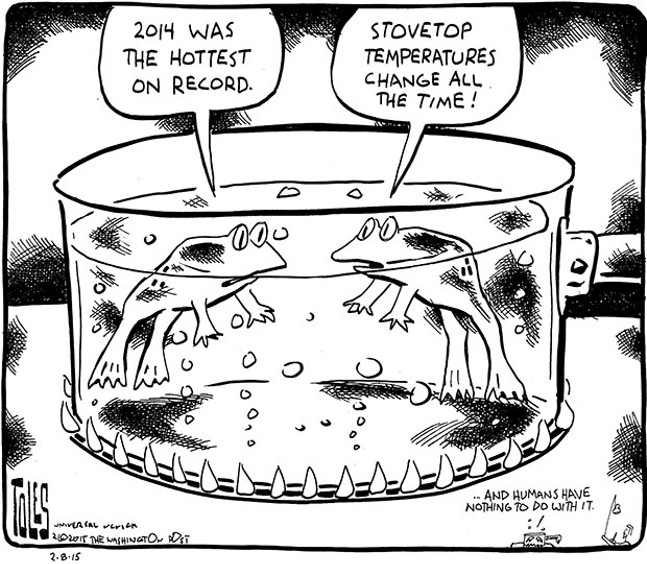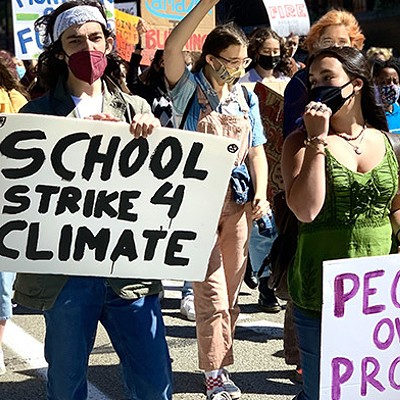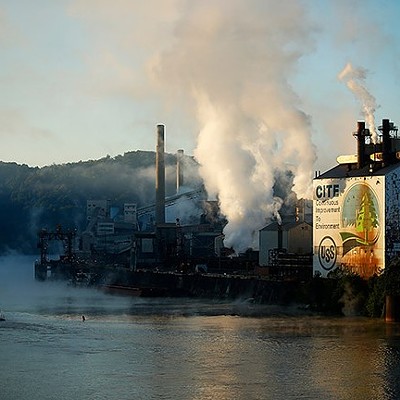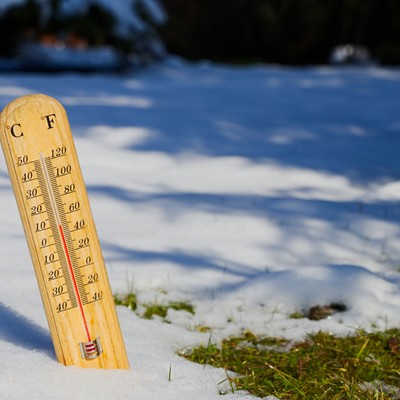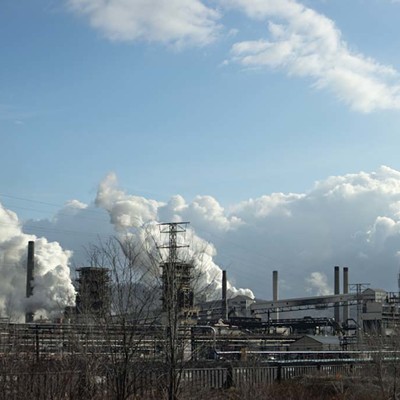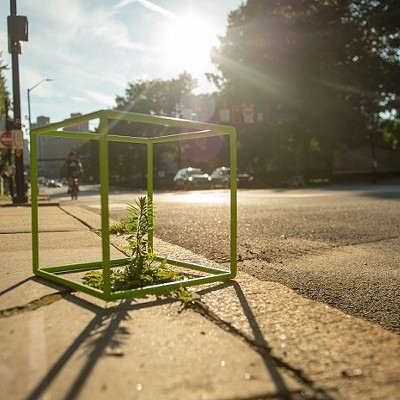For a guy who knows more about the subject than almost anyone, Michael E. Mann sounds surprisingly upbeat about climate change. The widely quoted atmospheric scientist based at Penn State University just released a new book with cartoonist Tom Toles, but its title — The Madhouse Effect: How Climate Change Denial Is Threatening Our Planet, Destroying Our Politics, and Driving Us Crazy (Columbia University Press) — belies what he calls his “cautious optimism” about humankind’s biggest challenge (albeit with a discouraging post-election footnote).
Madhouse is Mann’s follow-up to his 2012 book, The Hockey Stick and the Climate Wars, which detailed how his research got him attacked by fossil-fuel interests and other segments of the well-funded climate-denial machine. The 150-page Madhouse is built around more than 40 original and reprinted cartoons by Toles, the veteran, Pulitzer-winning Washington Post cartoonist who’s long raised alarms about climate change.
Along with chapters on the basics — why climate change is happening and why we should care — the book serves as a kind of bullshit-detector for those confronting denialism. You’ll learn why “skepticism” about climate science usually isn’t; how climate-deniers copy the playbook of the tobacco-industry flacks who fought the science that told us smoking kills; why climate change doesn’t have to “cause” storms to worsen disasters; and how to dismantle denier rhetoric, like assertions that climate change might actually be helpful.
Mann is an increasingly prominent voice. Along with the likes of Barack Obama and Pope Francis, for instance, he is featured in Leonardo DiCaprio’s new climate-change doc Before the Flood, telling DiCaprio about the death threats his research brought against him and his family. (The film just aired on the National Geographic Channel.) Madhouse is a more accessible sequel to Hockey Stick (whose title referenced Mann’s graph depicting the recent rise in global temperatures). One Toles cartoon depicts a melting sheet of ice balanced on a rock, while the guy standing beneath it asks his companion, “What’s a tipping point?”
“The hardest-hitting commentary is in fact in the cartoons, and then we try to somewhat soberly deconstruct and unpack what the cartoons are saying in the text,” says Mann.
Unchecked climate change promises a future of heat waves, droughts, bigger and more frequent storms, and rising and acidifying oceans. Given that some of its effects, like the melting of Greenland’s huge ice sheet, are happening much faster than scientists predicted, why Mann’s cautious optimism?
He cites last year’s landmark global climate deal at the Paris Summit, and the fact that in 2015, global carbon emissions dropped even as the world’s economy grew. He also notes Obama initiatives like the Clean Power Plan (requiring states to cut emissions from power plants) and requiring higher mileage in new vehicles. As for public opinion, Mann adds that 2016 polling by Yale University and George Mason University found that 70 percent of Americans agree that global warming is happening, up 7 percent from a year earlier (though crucially, just 53 percent acknowledge that it is caused by human activity). Overall, he adds, “I think that we’ve reached a point where the public has decided that we need to move on … out of this sort of outmoded fossil-fuel world into a 21st-century clean global economy.”
Nonetheless, Americans still have a problem discussing climate change: It was barely a topic in the presidential race, for instance, something Mann blames largely on the media being worked over by industry front groups and other climate-deniers, and partly on the influence of Big Oil ad money. “I think to some extent our discourse has been poisoned,” he says.
And of course, even the small progress we’ve made on climate is likely to stall (or worse) with a climate-denier as president. Donald Trump has vowed to void the Paris agreement and revoke the Clean Power Plan; he’s also bent on (somehow) reviving coal, whose role in the nation’s energy profile has shrunk in recent years, largely due to cheap natural gas.
Many scientists say that to prevent the worst effects of climate change, we must lower emissions enough to keep global temperatures from rising to 2 degrees Celsius above pre-industrial levels. That was going to be difficult in any case. But the notion of President Trump is enough to puncture even the most cautious optimism. “A Trump presidency … certainly represents a significant challenge to stabilizing warming below dangerous levels,” wrote Mann in a Nov. 9 email. “I fear it could be game over as far as that goal is concerned.”

